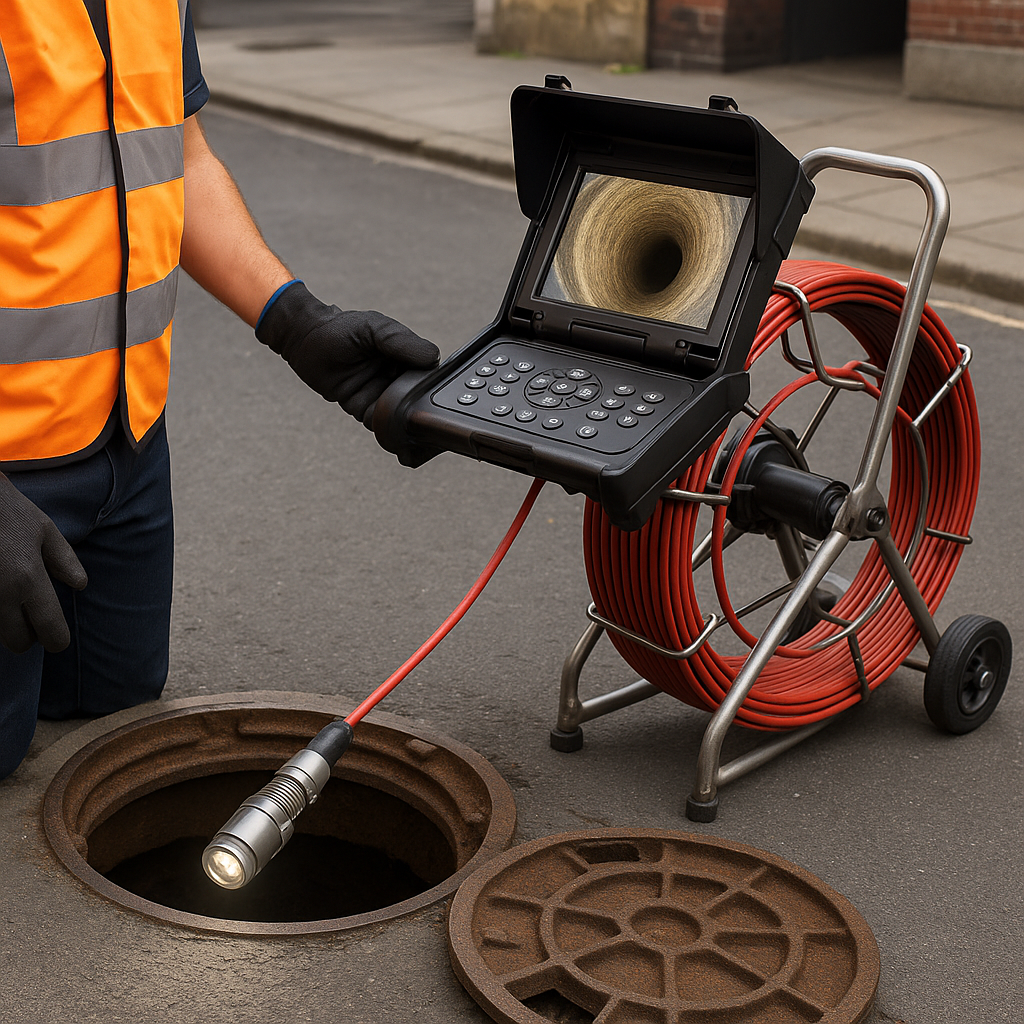Mastering Sewer Camera Inspection Techniques
Explore essential sewer camera inspection techniques to enhance efficiency and accuracy in plumbing and sewer maintenance.

Mastering Sewer Camera Inspection Techniques
Sewer camera inspection has revolutionized the plumbing and construction industries, offering a non-invasive method to diagnose sewer line problems. By understanding and applying the right techniques, professionals can enhance efficiency and accuracy in their operations.
Understanding Sewer Camera Inspection
Sewer camera inspection involves using a small, flexible camera attached to a long cable. This camera is inserted into the sewer line, providing real-time video feedback that helps technicians identify blockages, leaks, and other issues.
Why Use Sewer Camera Inspections?
- Non-Invasive: Unlike traditional methods, sewer camera inspections do not require digging up pipes.
- Accurate Diagnostics: Enables precise identification of problems within the sewer lines.
- Cost-Effective: Reduces the need for extensive labor and material costs associated with physical inspections.
Key Techniques in Sewer Camera Inspection
To maximize the benefits of sewer camera inspections, understanding and mastering key techniques is essential.
Equipment Selection
Choosing the right equipment is crucial. Consider the following:
- Camera Type: Select a camera suitable for the pipe size and material.
- Cable Length: Ensure the cable is long enough to reach the entire length of the sewer line.
- Resolution and Lighting: High-resolution cameras with adequate lighting provide clearer images.
Proper Insertion and Navigation
- Insertion Point: Begin inspection from an accessible entry point such as a cleanout.
- Steady Navigation: Move the camera slowly to avoid missing potential issues.
- Obstacle Management: Be prepared to maneuver around bends and blockages.
Advanced Techniques for Enhanced Inspections
Locating Issues with Precision
- Sonar and GPS Integration: Some systems integrate sonar or GPS for precise location mapping.
- Recording and Documentation: Record inspections for further analysis and reporting.
Integrating with Other Technologies
- Data Analysis Software: Use software to analyze footage and identify patterns or recurring issues.
- Remote Monitoring: Consider systems that allow for remote inspection and monitoring.
Practical Tips for Effective Inspections
- Regular Maintenance: Regularly maintain your equipment to ensure optimal performance.
- Training: Ensure all operators are properly trained in both equipment use and safety protocols.
- Update Technology: Keep up with technological advancements in camera equipment and software.
Current Industry Trends
- Eco-Friendly Solutions: Increasing demand for environmentally friendly inspection methods.
- Smart Technology: Integration of AI for predictive maintenance and automated reporting.
- Real-Time Data: Emphasis on real-time data collection and analysis for immediate decision-making.
Conclusion
Sewer camera inspection techniques are critical for efficient and effective sewer line maintenance. By mastering these techniques and staying informed about industry trends, professionals can enhance their service offerings, ensuring long-term success in the competitive plumbing and construction industries.
For detailed visual guides and further reading, explore our comprehensive resources section.